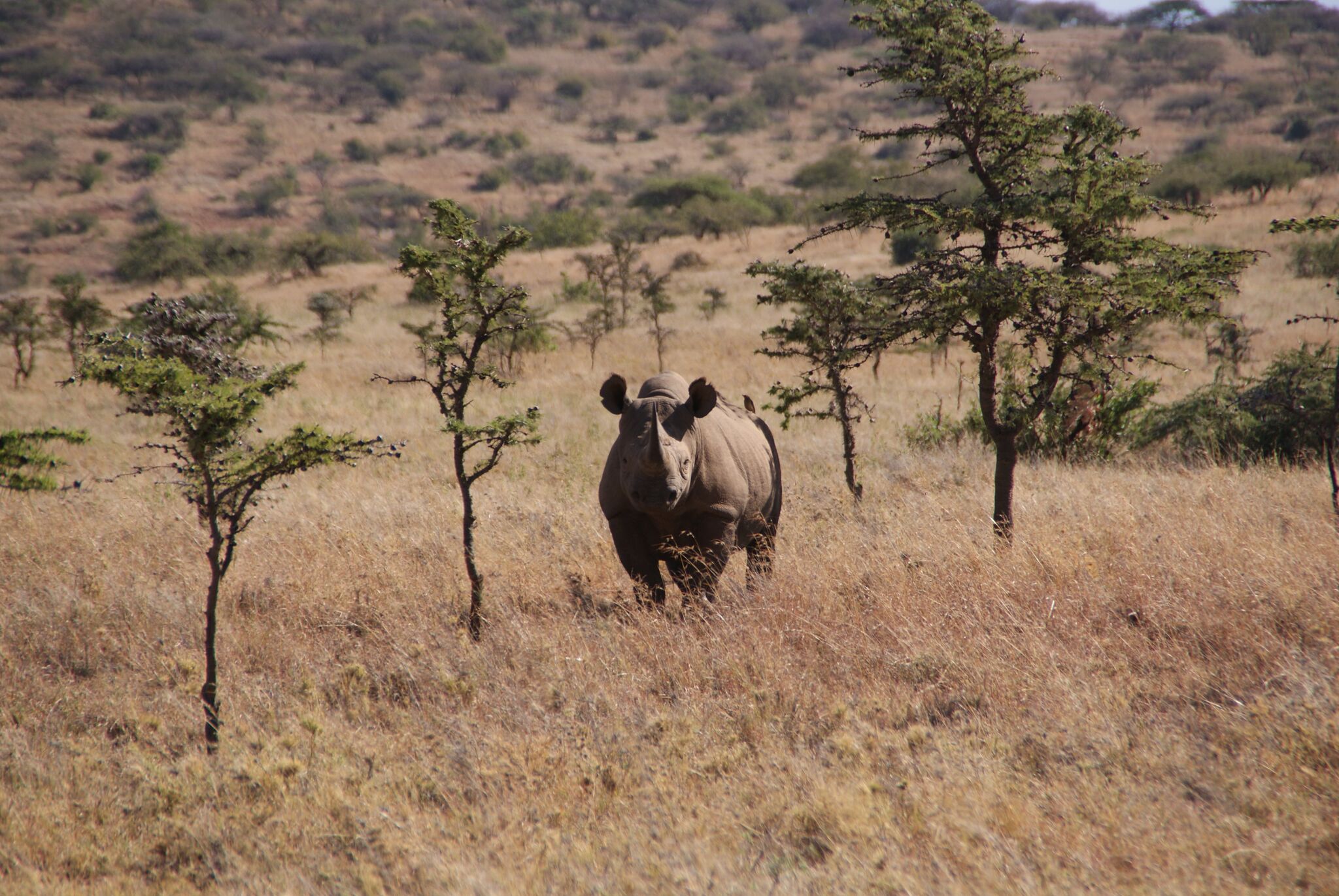Tag: Illegal Wildlife Trade
Chester Zoo’s Curator of Birds introduces the team
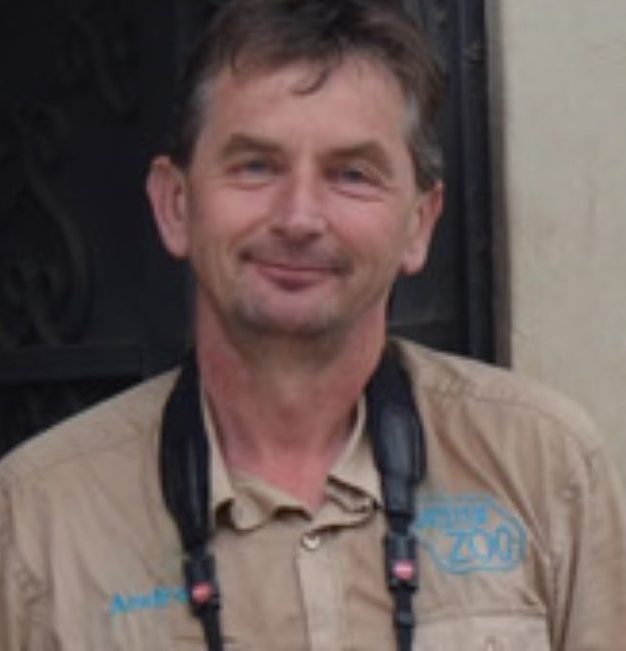
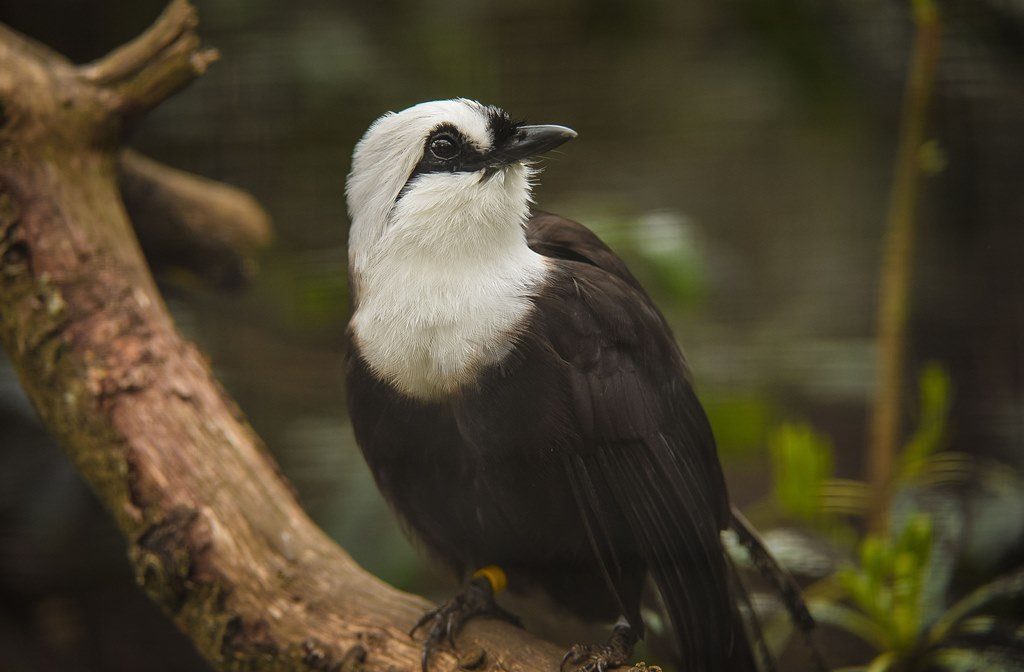
Time is fast running out for Indonesia’s most endangered songbirds. But a team from Chester Zoo led by bird intern Chris Coates will be running for their lives (the birds’ lives that is!) in the Chester Half Marathon.
Songbirds across South East Asia – and in particular in Indonesia – are rapidly disappearing from their forest homes. Trapped out to supply the unrelenting demand for the cage bird trade.
The forests are falling silent.
Birds such as the Javan Green Magpie, Black-winged Myna, Sumatran Laughingthrush and Rufous-fronted Laughingthrush are teetering on the brink of extinction.
Chester Zoo is working hard to help save these wonderful birds through managing conservation breeding programmes, providing technical and financial support to our partners in Indonesia, carrying out surveys, awareness and education and reintroduction of birds in to safe habitats.
This vital work can only be done with your support. The more money that can be raised, the more help we can give to the fight to save these fabulous birds from extinction.
Chris
I’m Chris and I am currently a One Year Intern within the Bird Department at Chester Zoo, helping to look after different species of songbirds.
This will be my first Half Marathon and something I have set myself the challenge of completing since taking up running a few years ago.
I will feel a great sense of pride to be able to raise funds to help save these amazing but critically endangered birds.
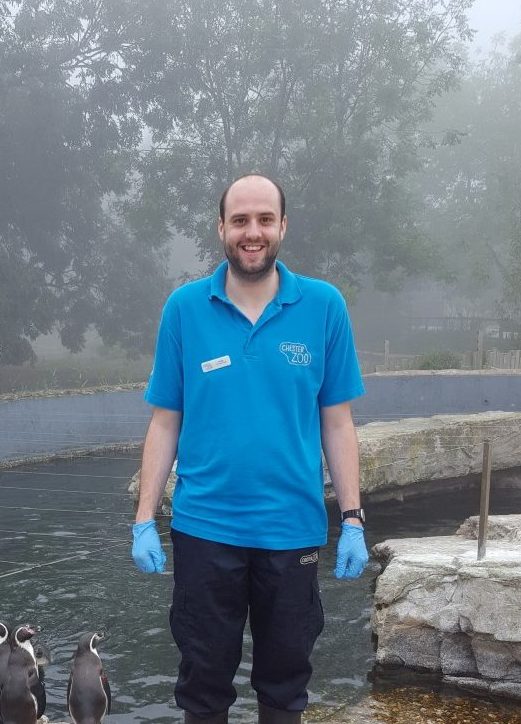
Sarah-Elizabeth
I’m big sis to Chris, I am running on behalf of Chester Zoo to help them raise funds and awareness for songbirds.
This will be my second half marathon, and even though I have run for 3 years and I’m also in a running club, half marathons will always be a challenge and I can’t wait to run for the zoo.

Suzanne
I’m retail operations manager at the zoo. In addition to the Chester Half, I recently walked the 3 Peaks challenge this year for Act for Wildlife.
I can run 5K so I will need to increase my distance to over 20K for my first half marathon. With such an important cause behind us, I know we will all be able to make it to the end!
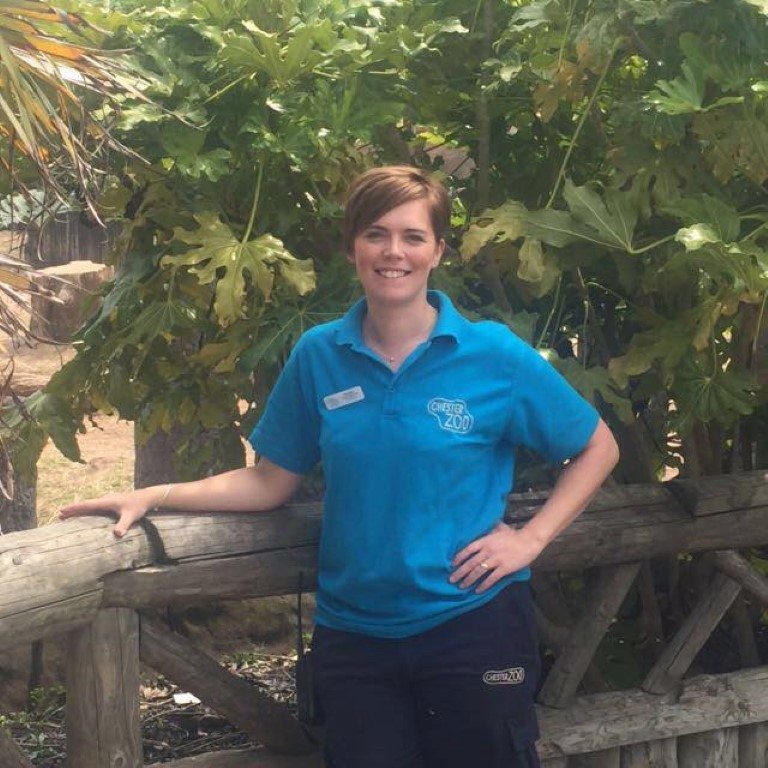
Abbie
I’m on placement as a bird intern at Chester Zoo. I work closely with Asian songbirds at the zoo and I’m currently involved in a research project to give us a better understanding of the behaviour and welfare of the Javan Green Magpie.
I’ve previously lived life as a couch potato and started running around 5 months ago and this will be my first half marathon.
Please give what you can!

Matt
I have worked with songbirds at Chester Zoo and at the conservation breeding centre in Cikananga, so this is a cause very close to my heart. I know how much of a difference any money made will make.
I have not run anywhere near this distance before but it’s a challenge I am really looking forward to.
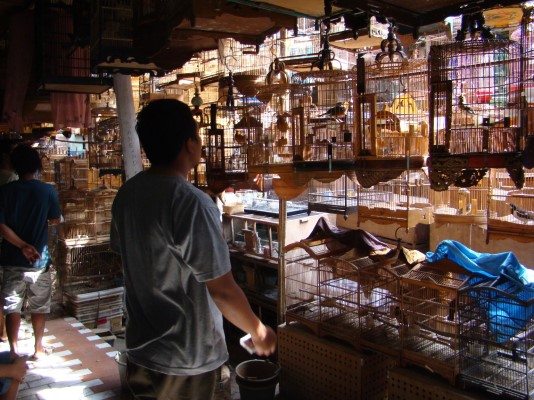
Jon
I’m Head of Guest Experience at Chester Zoo, and am looking forward to completing the Chester Half Marathon as a team to raise funds for this important cause.
I last ran The Great North Run in 2003… and haven’t done any running since then so it will definitely be a challenge!
Please give what you can to support.
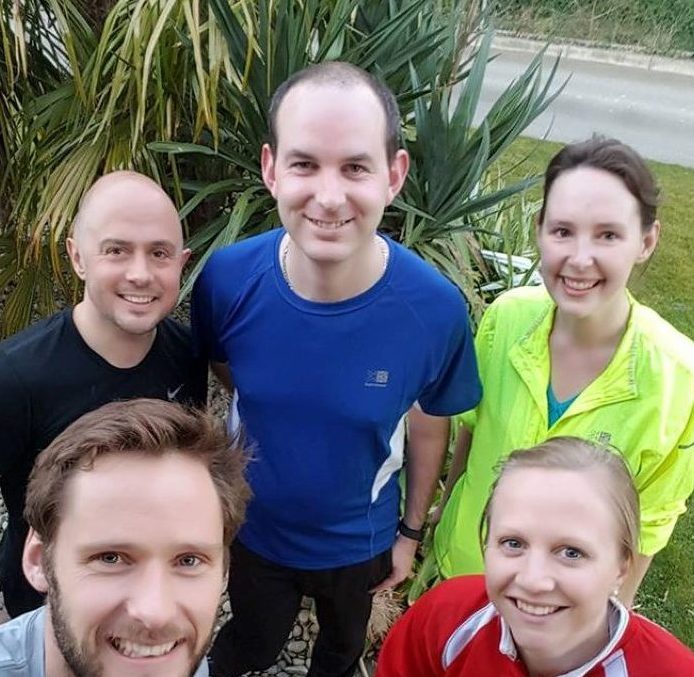
Olly
I run the Catering department at Chester Zoo – ensuring all our visitors and staff are fed and watered.
One of the unique parts of working at the Zoo is knowing that all your hard work is contributing to good causes and being able to get involved directly in fund raising initiatives such as the 2 challenges I am undertaking this year: the 3 Peaks challenge for Painted dogs and the Chester Half Marathon to save Indonesian Songbirds.
The aim is to raise awareness of both causes and hopefully get a little fitter along the journey!
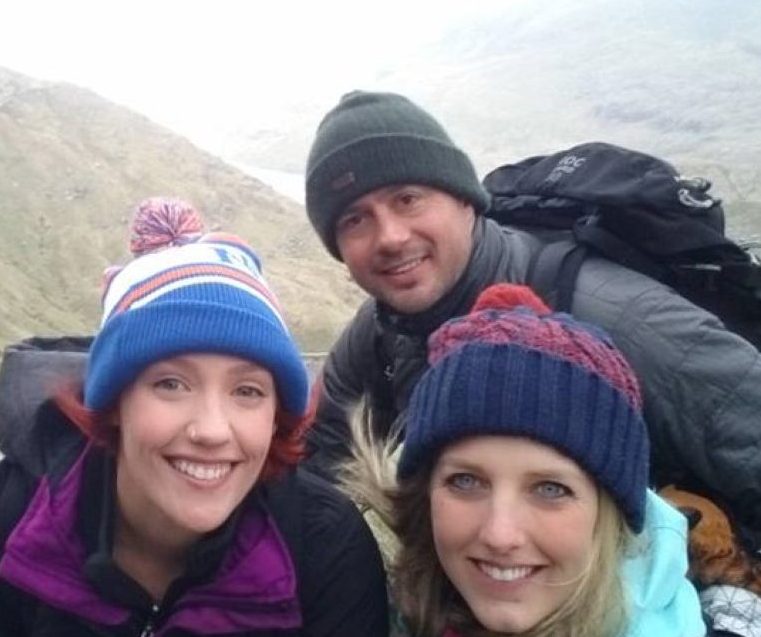
Ian
I’m Commercial Analyst at Chester Zoo, so deal with anything to do with data and getting information to people. It’s an incredible place to work and I love knowing it’s all for a good cause.
Since joining the zoo 2 years ago, my eyes have been opened to the amazing conservation work that takes place here. This has encouraged me to away from my desk and help support these great causes with Born Survivor and now the Chester Half Marathon. Hopefully there’ll be many more challenges to come…if I get through this one alive!
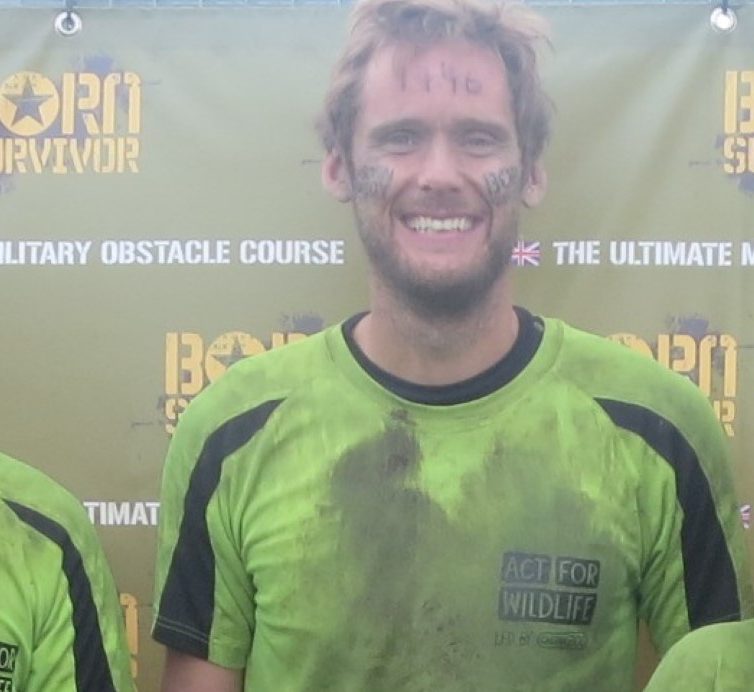
The Asian Songbird Crisis Summit brings together bird experts from all over – from zoo curators and keepers, leaders in bird taxonomy and conservation, experts in field ornithology, tropical bird ecology, avian genetics and wildlife trade. All are there for one reason: to help find ways to protect and conserve South East Asia’s songbirds. Our Curator of Birds, Andrew Owen, tells us his story…
The below video highlights some of the activities our discovery and learning team are doing in the field, as well as the work we’re doing with schools right here in the UK to help raise awareness of the songbird crisis and how we can all help make a difference.
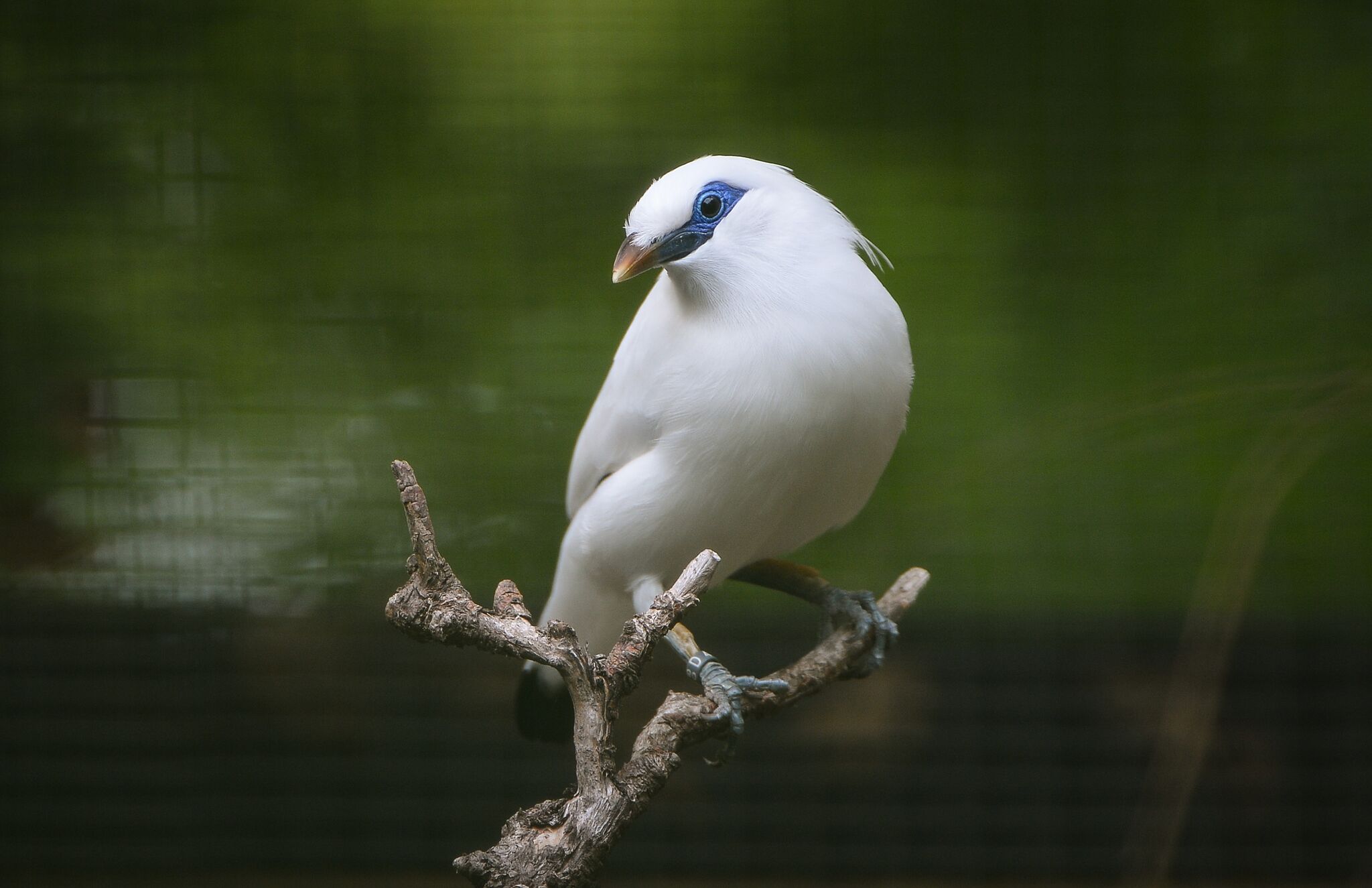
Donate to Indonesian Songbirds
Donate to our songbird project and 100% of your money will be used to help save songbirds in the wild.
Rose Gelder is part of the team that raises money to help fund our conservation work around the world. In 2016 she organised three Pokémon Go events at the zoo with the proceeds going towards our projects. The first event alone raised £17,500 and the money went towards our emergency appeal to rebuild an aviary block in Cikananga Conservation Breeding Centre (CCBC).
She recently visited our songbird project in Indonesia to meet the team and see how these vital funds are making an impact on the project…
“We’ve been working with Cikananga Conservation Breeding Centre in West Java for over six years. The centre is run by a small dedicated team who are experts in breeding several species of endangered birds, including Javan green magpie and black-winged starling.
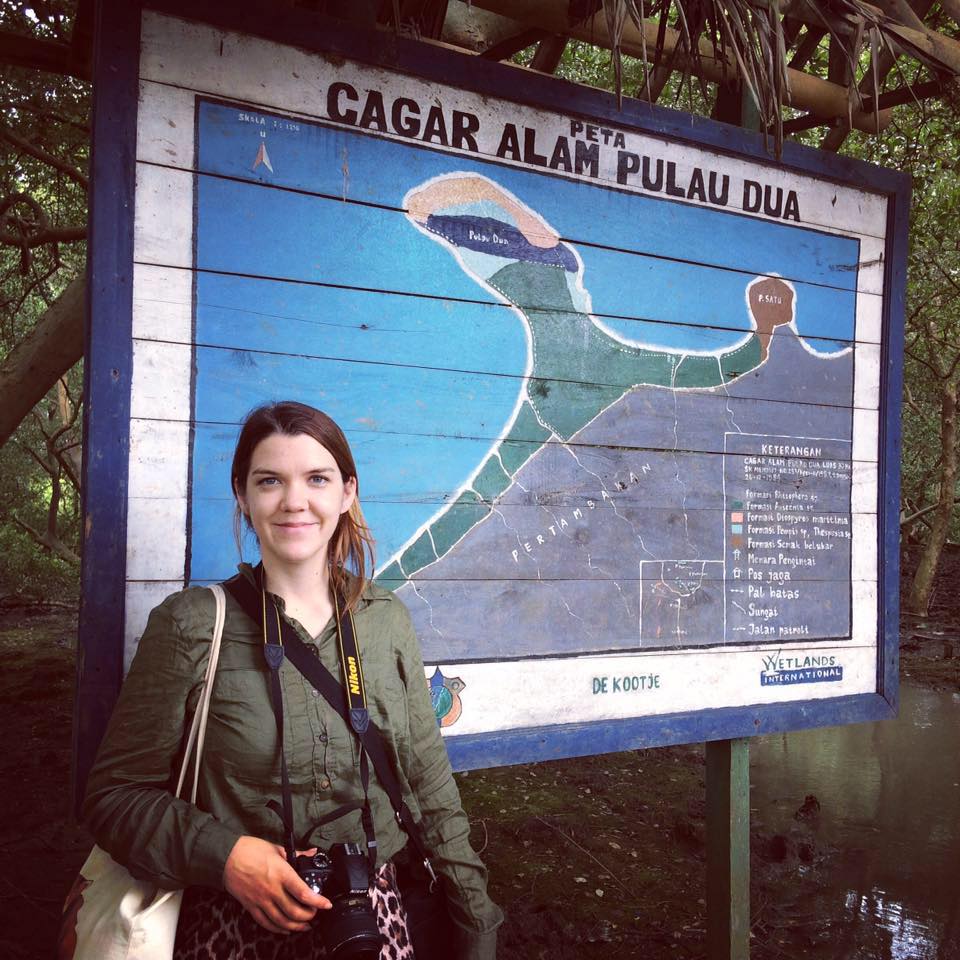
Horrific experience
“We spent the first day in Indonesia in the capital Jakarta visiting the largest bird market in the city, Pramuka. This was a horrific experience. We saw so many familiar species living in disgusting conditions, including the Java sparrow, Asian fairy-bluebirds and the critically endangered Bali starling, all being kept in a small cage ready to be sold.
“We were confronted with the scale of the problem, as we travelled to Cikananga. Almost every house we passed on the drive had at least one small cage hanging outside, the sound of birdsong audible every time we stopped. We soon realised that you can hear birds singing beautifully in every village that we passed, but the forests we travelled through were all silent.
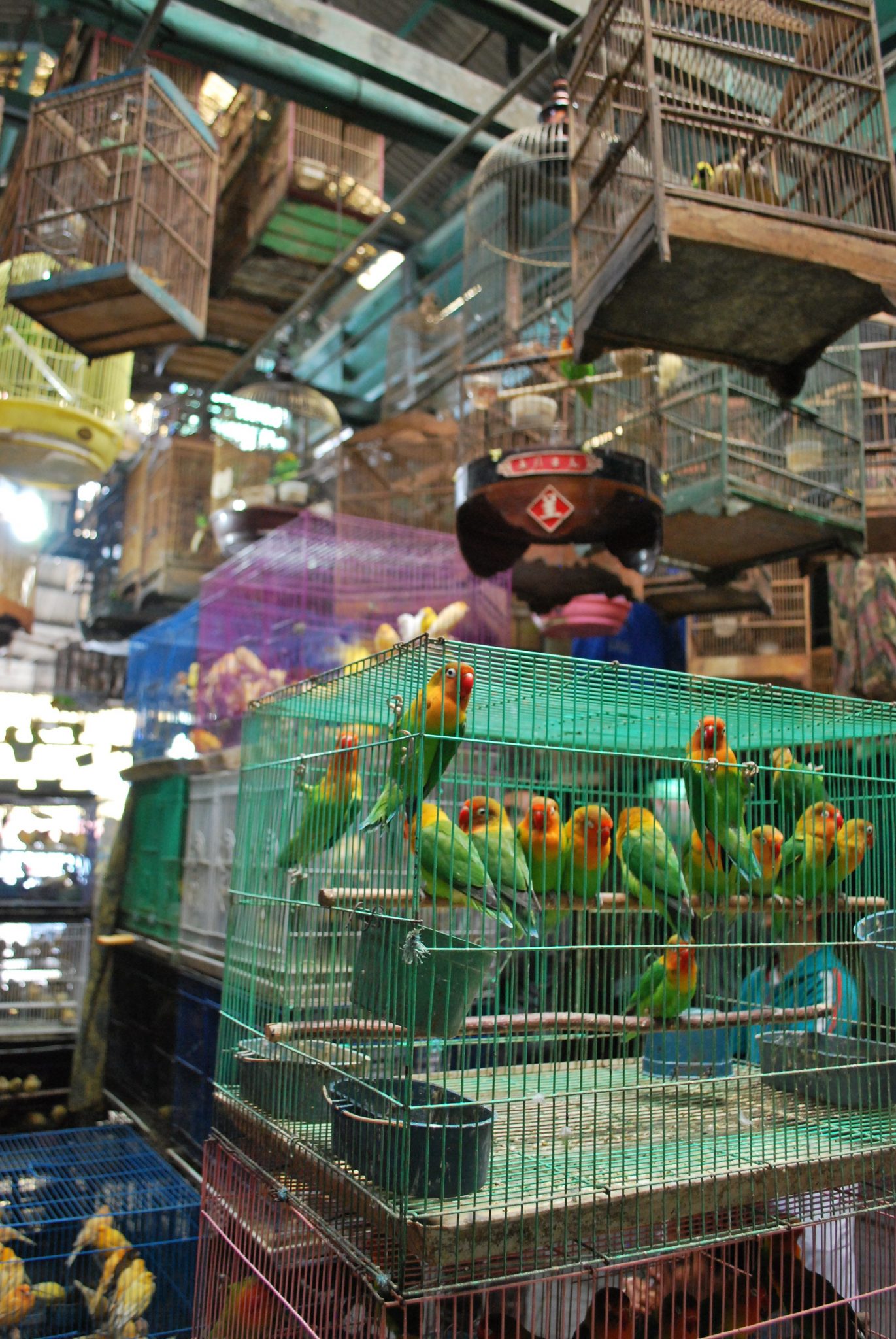
We are well on our way to providing every single bird at Cikananga with this wonderful, state of the art enclosure.
“Visiting CCBC was the perfect antidote to the visit to the markets. Faced with the realisation of how widespread the culture of keeping birds in cages was in Indonesia, it was lovely to meet the team who were doing everything they could to make sure the most critically endangered bird species don’t become extinct in the wild.
“CCBC is based in the middle of the rainforest, next to the village Cikananga. Surrounded by paddy fields and a few small villages, the forest is lush and dense. The aviaries are located behind a big steel fence, protected by two big guard dogs. The birds kept here are so valuable that CCBC has been the victim of repeated thefts, with people stealing the birds to sell for large sums of money. They no longer take any risks with their security.
The money we raised last year on our Pokemon event will be spent on a new aviary, the second out of four that drastically need rebuilding.
Old vs new
“When we arrived at the centre we went to see their first new aviary block which had just been completed. The old wooden aviaries are rotten from the humidity and termite infestation, but the new building has been made of concrete and metal mesh with deep concrete foundations, meaning rats can’t access the enclosures and attack the birds.
“They are all around safer, cleaner and a much more beneficial environment for the birds to live in. With one out of four aviaries replaced, and a second fully paid for, we are well on our way to providing every single bird at Cikananga with this wonderful, state of the art enclosure. This will boost the breeding activities of these birds, so when reintroduction programmes are started there will be a healthy number of pairs to release into the wild, giving a greater chance of the species thriving in their new habitat.
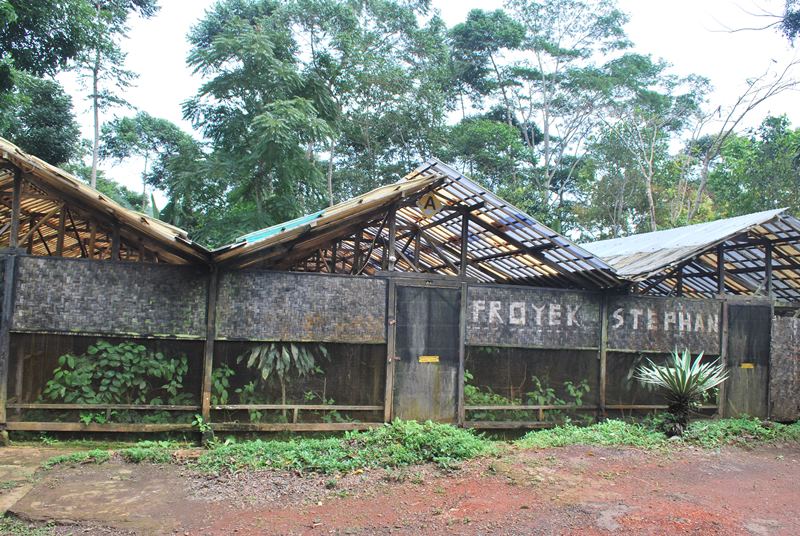
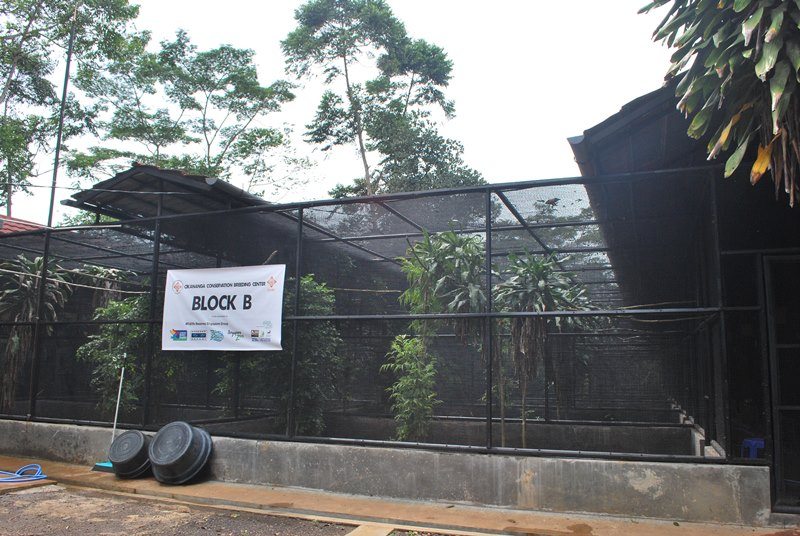
“Hopefully our efforts won’t be too late to save these beautiful birds from extinction. With prices on their heads so high, it’s critical that we act now to protect these species remaining in the wild. There are concerns that as the Javan green magpie is no longer showing up on markets, it may well be extinct in the wild. We don’t want the other birds to suffer the same fate.
“Sitting at my desk in Chester, it’s hard to get a grasp of how desperate the situation for the songbirds is. Coming face to face with the issues, I’ve gained a much clearer understanding of how the illegal trade of these species is decimating these populations, and if we don’t act soon these birds will no longer be found in the wild, future generations won’t be able to enjoy their beautiful songs.
We urgently need to act – we can all make a difference to these wonderful birds.

Donate to Indonesian Songbirds
Donate to our songbird project and 100% of your money will be used to help save songbirds in the wild.
Saving the northern bald ibis from extinction
During the summer of 2016 we were delighted to breed seven bald ibis chicks. A critically endangered species, the northern bald ibis is part of a European breeding programme led by zoos. With an estimated 115 pairs of birds left in the wild the northern bald ibis is on the brink of extinction. This is the second breeding success for our bird keeping team. The first of the chicks bred here were released to the wild in February and the latest will be released early next year. We’re hoping that by introducing these birds to a protected site in Southern Spain we’ll take big step forward in reversing the decline of the species.
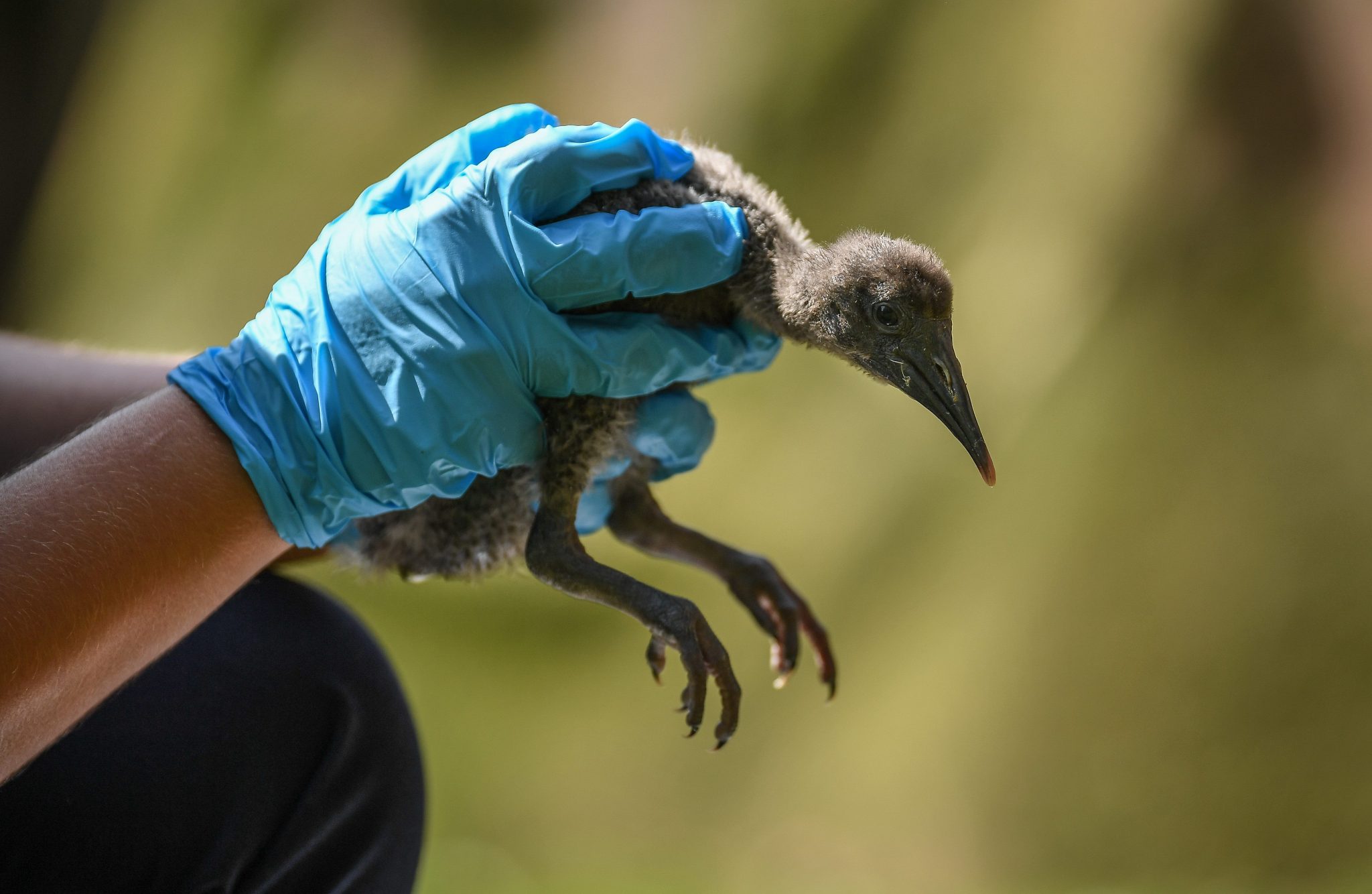
Saving turtles with your support
You’ll remember our recent appeal to help our partners at the Katala Foundation project in the Philippines after they confiscated over 3,500 live Palawan forest turtles. The future looked bleak for the turtles that had fallen victim to the illegal wildlife trade and were destined to be sold in China. We’re delighted to report that thanks to your support and the hard work of the team working on the ground at the Katala Foundation, 89% of the turtles were saved and have now been reintroduced in to the wild. Thank you!
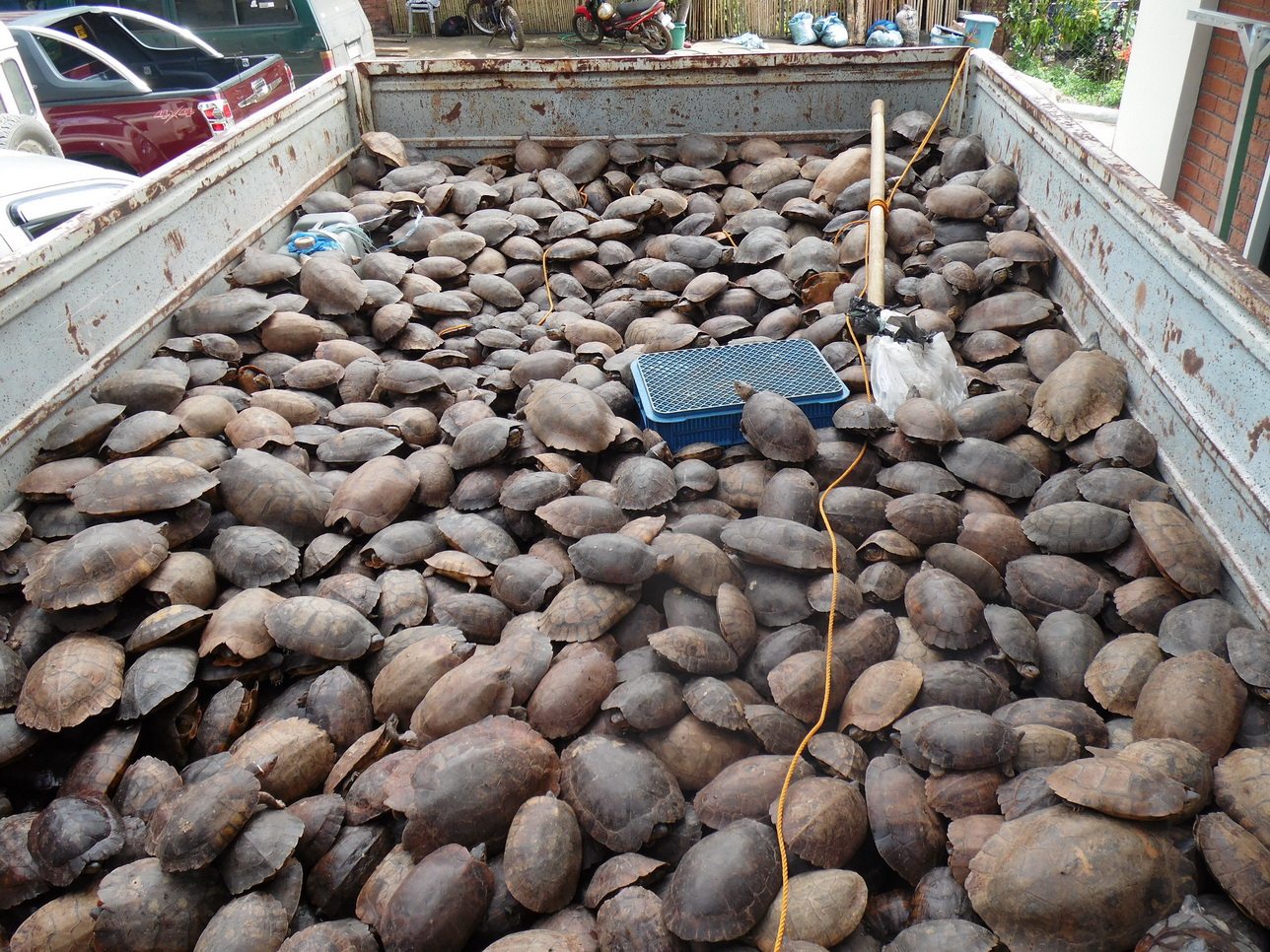
Proud of our volunteers making Wildlife Connections
All year we’ve been focused on giving people across the UK the skills that they need to deliver real conservation in their own back yards. We’ve trained 57 wildlife champions to go out, create wildlife friendly habitats and to train their local community to do the same. Plus, we’ve had hundreds more people sign up and download our ‘how-to’ guides to create their own Wildlife Connections. It’s not too late to sign up for a ‘UK wildlife friendly’ start to 2017. Why not make it your New Year’s resolution?
We Will Never Forget
This year we launched our ‘We Will Never Forget’ campaign to raise funds to support research in to the deadly EEHV virus which threatens young elephants in zoos and all over the world. For us, this was personal after we lost elephants to the virus. We’ve been overwhelmed by your support; to date we’ve raised £100,000 which has funded a post-doc research position dedicated to finding a cure the virus. Please help us to keep this vital research going and enable us to carry out more research in the wild by making a donation.
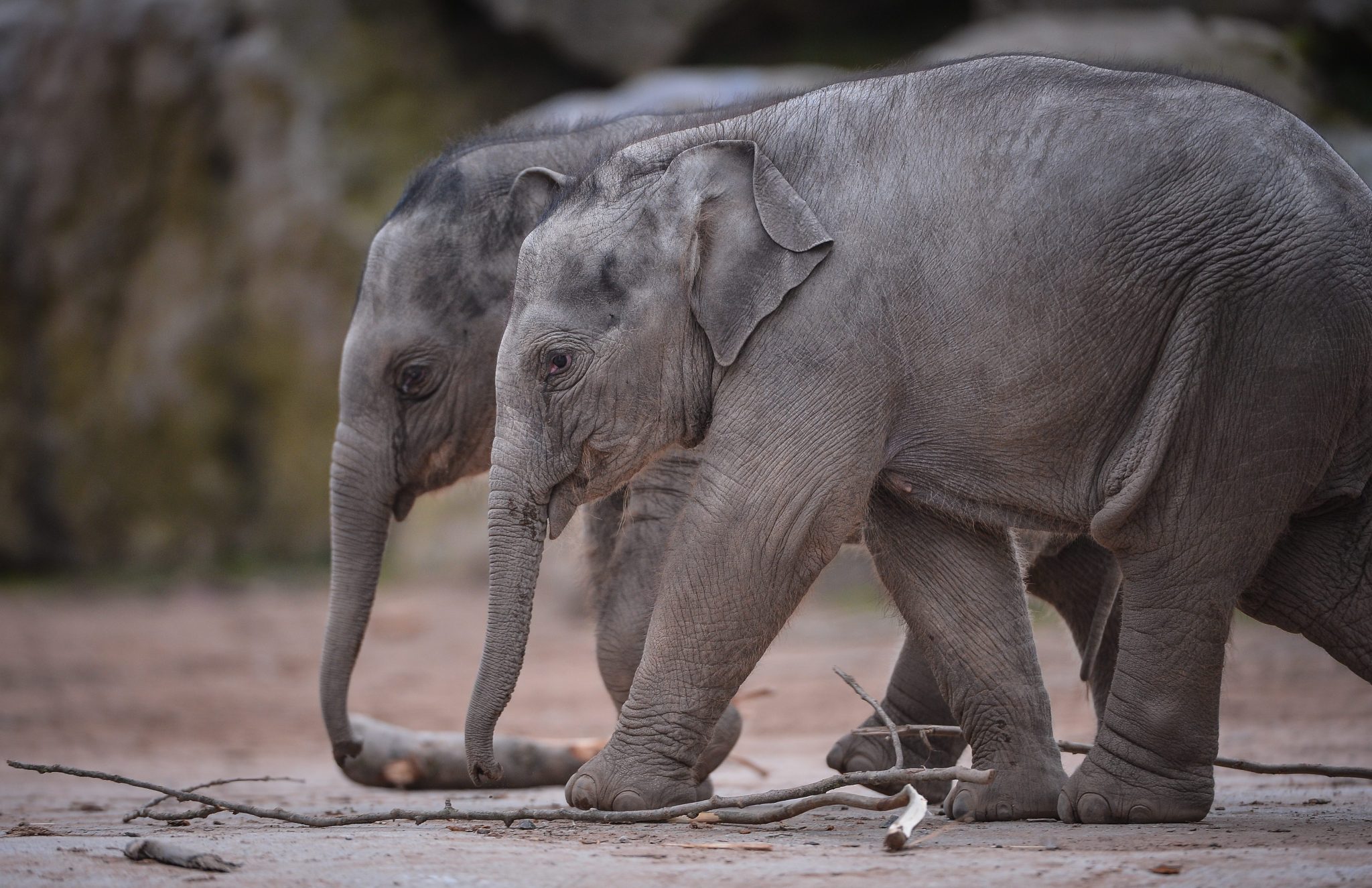
Supporting the next generation
We’re really proud to be helping to train the next generation of conservation scientists. We’re currently supporting 17 Chester Zoo Conservation Scholars from nine institutions, who are working on a range of species and topics in the zoo and out in the wild. This year, Conservation Scholar Ee Phin Wong completed her PhD research and has now gained a post-doctoral position. We’re really looking forward to working with more scholars in 2017.
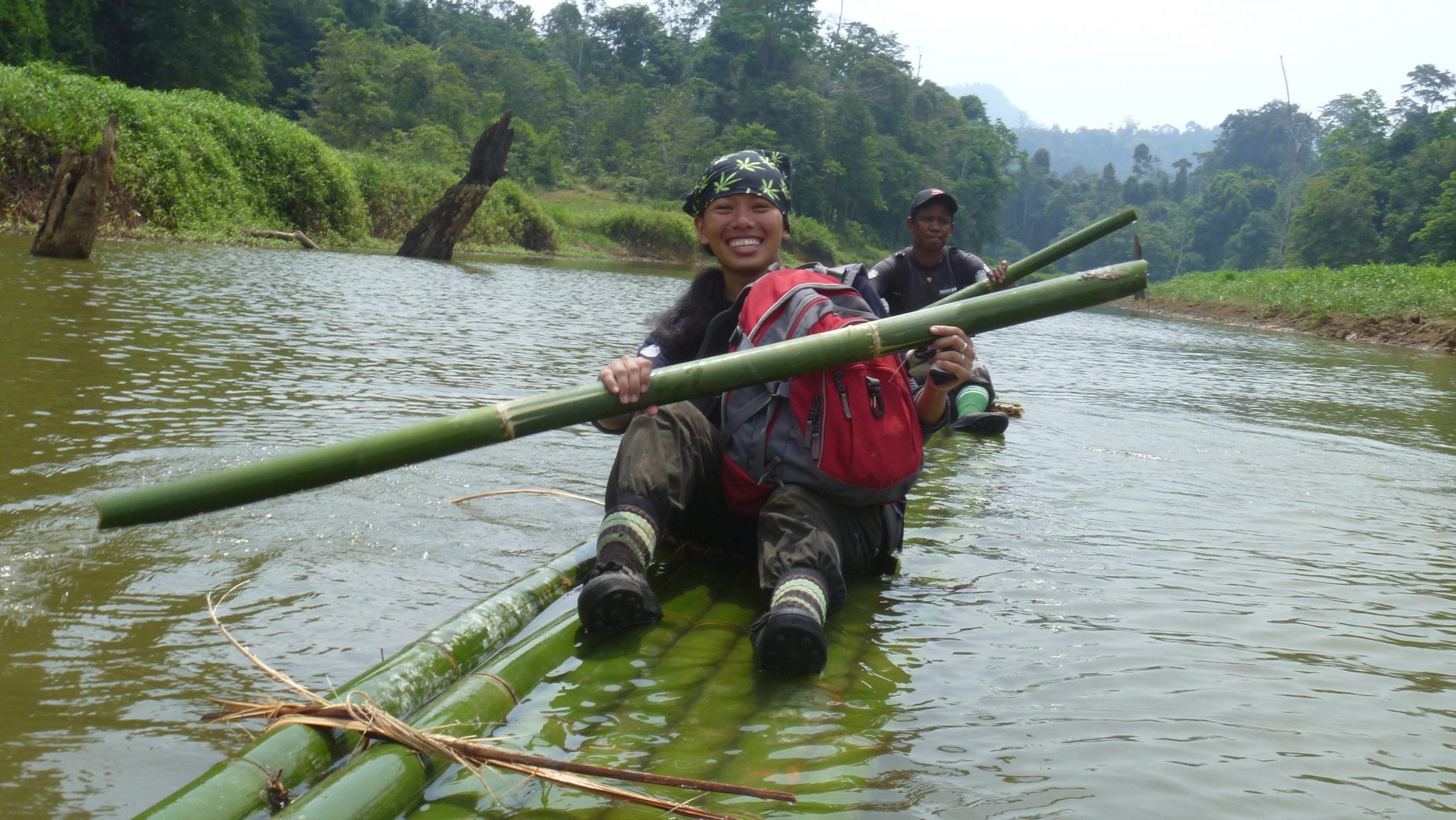
Find out more about how our community of committed experts and enthusiasts are making a real difference to conservation by signing up for our e-newsletter or following us on social media.
We’ve been working with the Big Life Foundation for over a decade to protect and monitor a population of eastern black rhinos in Chyulu Hills National Park. The black rhino is one of the most endangered species on Earth; they’re being brutally killed because of the trade in their horn. The eastern black rhino is the most endangered of all the African rhinos – only 740 remain in the wild!
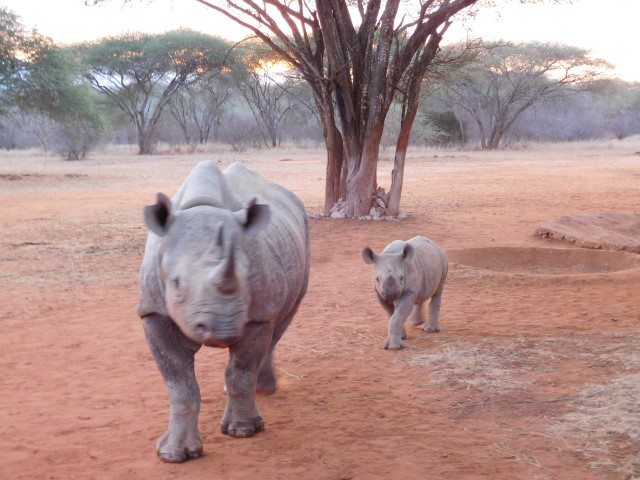
Chyulu is the only population of black rhino remaining in Kenya where all the individuals are native and naturally occurring, making it a uniquely important site for rhino conservation.
Protecting these precious animals is a 24 hour job – and a dangerous one too! Poachers are often part of highly organised and armed criminal gangs and will find any way possible to get hold of rhino horn for the international illegal trade. They will stop at nothing to get their hands on it so the rangers need to be highly trained, heavily armed and very disciplined. While most rhino hunting attempts are stopped by the rangers before they can take place, five rhino have still been poached in Chyulu Hills over the past three years, which has a devastating impact on this tiny population.
The long term future of the black rhino is hanging in the balance across Africa. The team of Big Life rangers at Chyulu are absolutely vital in the fight to protect rhinos from the illegal poaching for its horn.
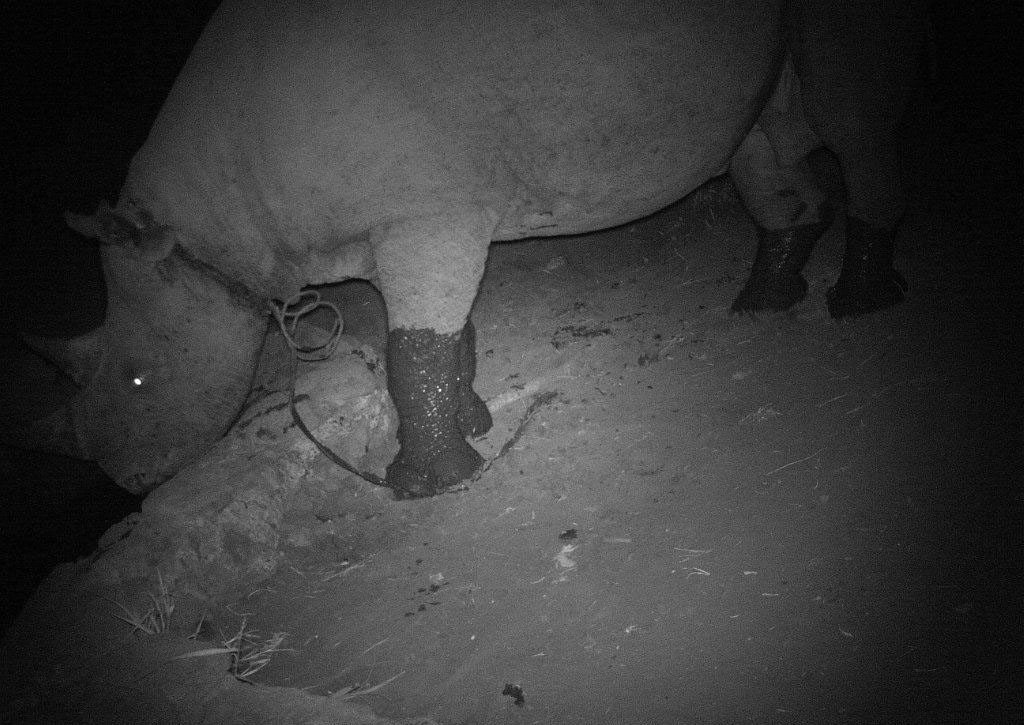
Barbara Dreyer, rhino keeper at Chester Zoo, spent time with the amazing teams that are working on the ground in Chyulu Hills National Park. Below she tells us more about her experiences and how it’s a trip she’ll never forget.
“Visiting our conservation partners, Big Life, was inspiring – watching and listening to the teams that work there was truly amazing. Everyone made me feel really welcome and some staff had even come in on their day off to meet me and share their knowledge and experiences of working with rhinos.
“Everything is run on a really hard schedule – not only to ensure these rhinos are protected but also as a safety precaution for the staff and rangers. One ranger took a call after being alerted to illegal bushmeat that was being transported down a certain road, which he then had to deal with. There’s always something going on.
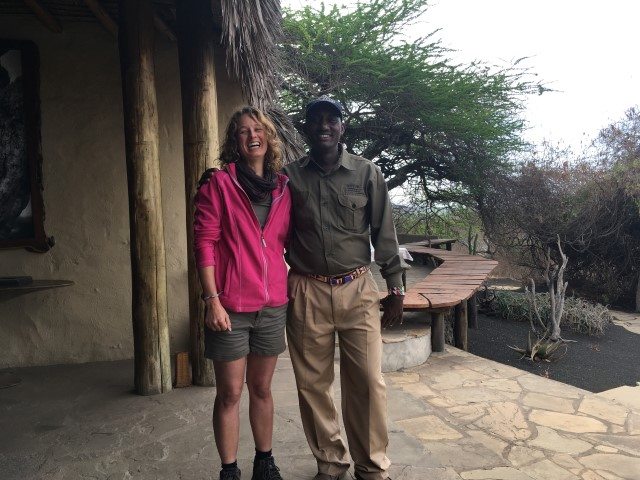
“Protecting black rhino in the 21st century is incredibly dangerous for all of the protection team – it’s definitely extreme conservation! The whole experience for me was a real eye opener; seeing the level of threat to the rhinos and how passionate everyone is considering the very real risks they face every day.
“Chester Zoo’s support has enabled the teams to buy essential equipment needed to keep the area secure and provides the salaries for the rhino rangers. We felt overwhelmed – our colleagues in the field were really appreciative of our support and the support of the zoo.
“I met one rhino tracker who used to be a rhino poacher; he’s changed his lifestyle and learnt more about conservation after being approached by Big Life and is now a rhino tracker to help protect them. He’s proud of the work he does; bringing a livelihood and pride to his family and village. People now respect him for the job he does and he no longer has to live in hiding.
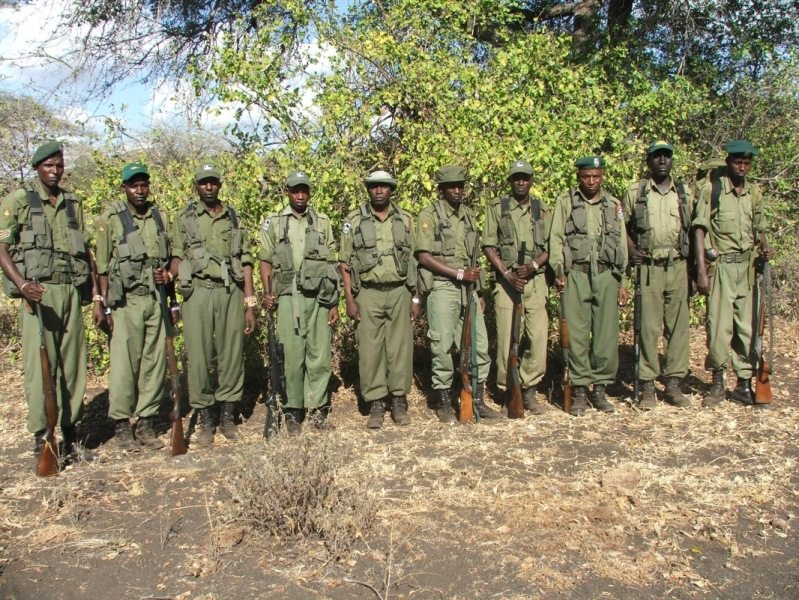
“One of the skills I was able to share with the protection team, is how we identify our individual rhinos at Chester Zoo and how we have categorised ID sheets for them, taking photos once a month of different parts of the rhino – left side, right side, horn, etc. – noting all their unique individual markings, ear notches and scars and looking for new marks or changes.
“I’m thrilled that I’ve been able to help develop this system at Chyulu. I’m now part of a rhino identification panel, so they send regular photos of rhinos to help identify. This process will help monitor the individuals, their behaviour and keep a note on where they’re moving around the park which is all vital in protecting them every day.
It really doesn’t cover it when you say ‘it was such an amazing experience’. I really didn’t know what to expect, I tell our visitors about our work in the wild but to then to see it, be a part of it and feel it and to see the engagement from everyone, to see how they feel…you just can’t put words on it!
“It made me feel even more proud to work at Chester Zoo, knowing how important the work we’re doing is helping.
Over the past 12 months Big Life has been working hard to get Intensive Protection Zone (IPZ) status in Chyulu Hills. The habitat is perfect for black rhinos and with IPZ status it would mean better protection for the remaining population, and possibly even enable them to translocate more black rhino to this area. The IPZ status means that Chyulu will benefit from increased support from the Kenyan Wildlife Service, including more armed rangers in the most important sectors where the rhinos are found.
The black rhino, like all other rhinos, is in serious danger; its numbers have plummeted by 90% since the 1980s. In 2011 the IUCN recognised that the western black rhino, from Cameroon and the Northern white rhino from north eastern DR Congo had both become extinct in the wild.
The eastern black rhino is hanging on to survival by a thread. Currently we are at risk of this species going extinct in the wild in just over 10 years. Places like the Chyulu Hills need continued support. ACT NOW to save the species.
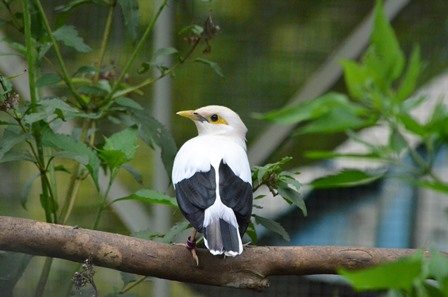
We are working with our partners, Cikananga Conservation Breeding Centre, in Java on a vital conservation breeding programme; managing insurance populations of some of the world’s most threatened birds with the long-term aim to then release them into safe wild areas to increase population numbers.
In order to continue this vital work we urgently need to build new aviaries to replace the old ones which are in danger of collapsing due to the destructive humidity.
Johanna Rode-Margono, South East Asia programme coordinator at Chester Zoo, tells us more:
“Every year the rainy season and termites take their toll on the wooden-framed aviaries at the breeding centre. We are at a point where the decay of the old aviaries actually risks the security and life of the birds, and we urgently need to start building new durable facilities. As these birds breed in pairs and are quite competitive, they do need a well-laid out plan of single aviaries that enable successful breeding.”
Make a donation
You can help by texting ‘BIRD44 £10‘ to 70070 to donate £10 towards our urgent aviary appeal. Alternatively, you can make an online donation here. Thank you for your support!
(*Our Text to Donate service is delivered through Just Giving. For full Terms of Service please visit Just Giving)
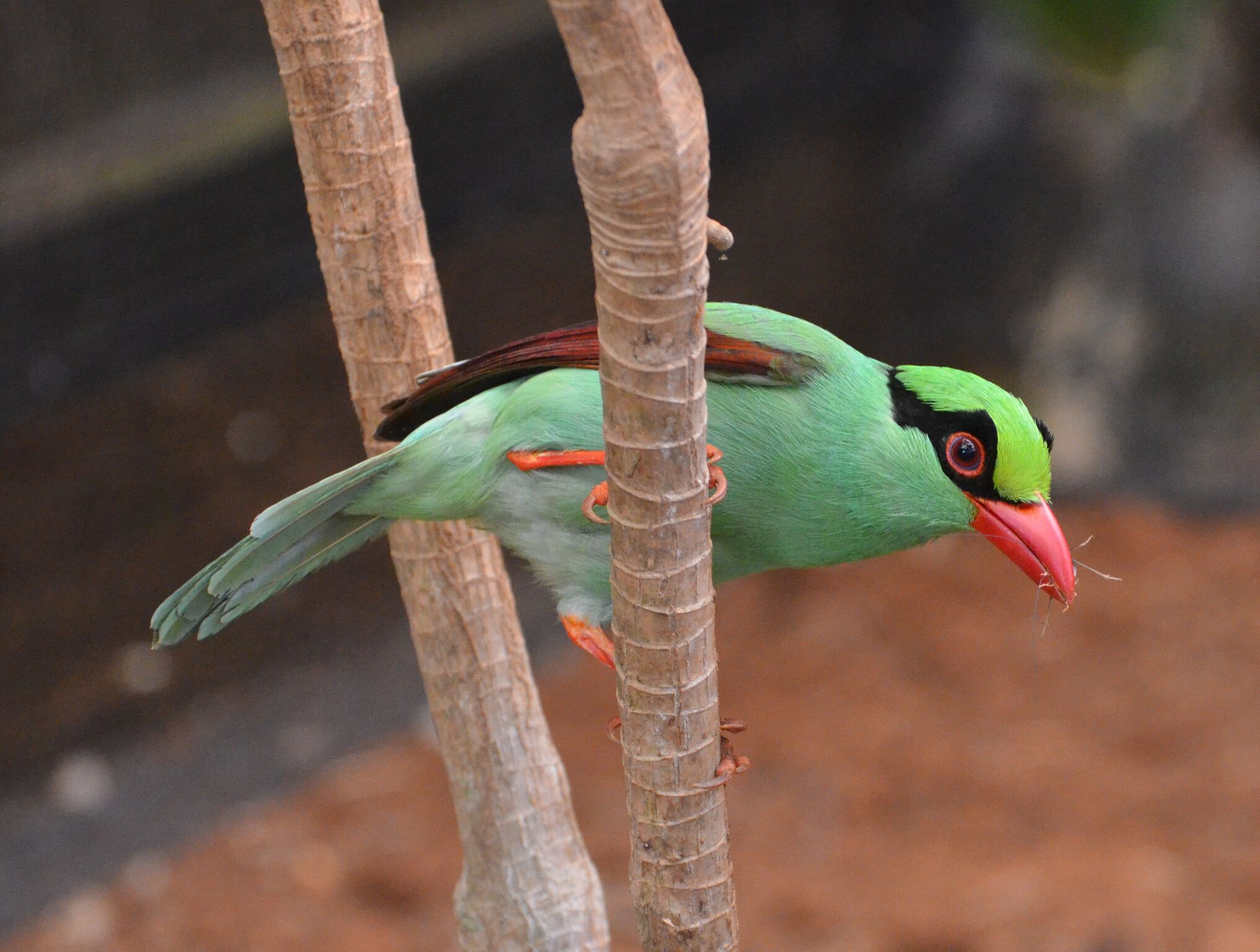
Why are these birds disappearing?
South East Asia is currently facing a massive songbird crisis as a result of the illegal wildlife trade – birds are being captured and trapped to be used either in singing competitions or kept in cages as a status symbol, displaying the owner’s wealth. So on top of the breeding programme, we are also working with our colleagues to identify potential secure release sites for some of the birds we’ve been working so hard to breed.
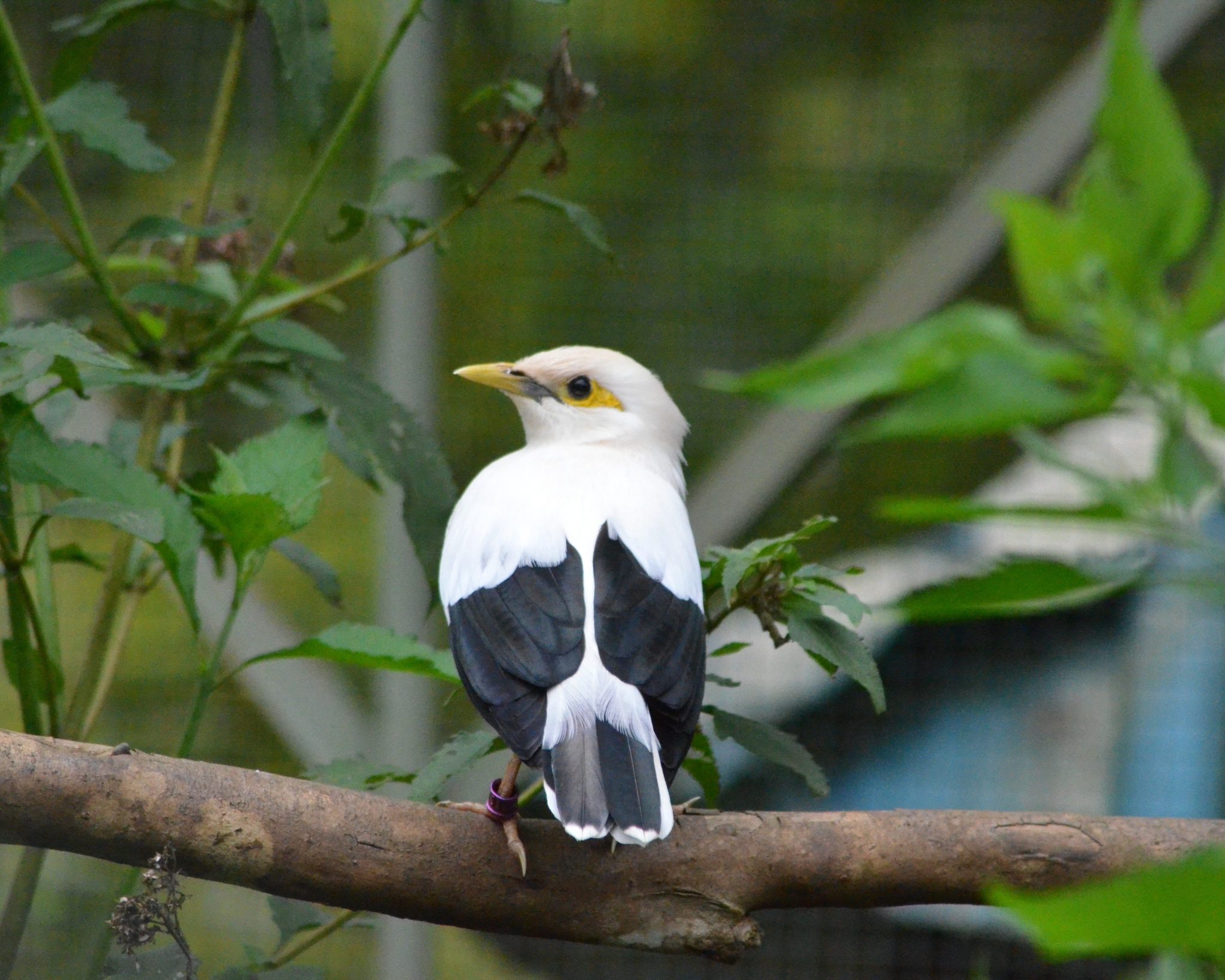
Donate to our songbird project and 100% of your money will be used to help save songbirds in the wild.
Maria Joana Ferreira da Silva is the coordinator of a team of researchers in Portugal. Last year she was awarded a grant from Chester Zoo to support her work in protecting the endangered Guinea-Bissau Western chimpanzee. Below, she tells us more:
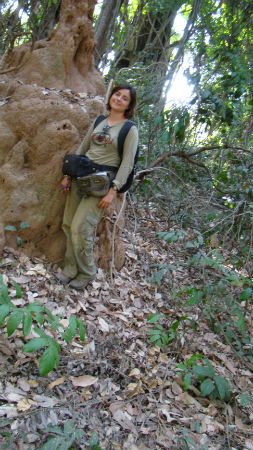
“Our team is investigating primate species in Guinea-Bissau to promote science-based conservation. Our ultimate goal is to protect the endangered Guinea-Bissau western chimpanzee, and other primate species at a landscape-scale in the long-term.
“Our main objectives are 1) to identify and select critical areas for primate conservation using a research-based system and 2) to engage local communities, national governmental agencies and local stakeholders in the protection of primates in Guinea-Bissau.
“To achieve our objectives, we will assess the current distribution and evaluate the conservation status of primate species in Guinea-Bissau and evaluate the intensity of deforestation and hunting in locations where primate populations remain. This will allow the developing of a landscape-level community-based conservation strategy.
“The endangered western chimpanzee (Pan troglodytes verus) is one of the more emblematic out of the ten species of primates found in Guinea-Bissau. Once erroneously declared extinct in the country, chimpanzees were re-discovered in the 90s and are currently heavily protected by local communities, national and international NGOs.
“They represent a major attraction for international ecotourism and are of particular importance for scientific research. The range of this sub-species extends further north and west than any other sub-species and so is considered key for the global conservation of the western chimpanzee. Additionally, chimpanzees in Cantanhez Forest National Park, the southernmost national park in Guinea-Bissau show a preference for constructing nests in palm trees. This is a particularity not seen in any other studied population in the world making these Guinea-Bissau chimpanzees unique.
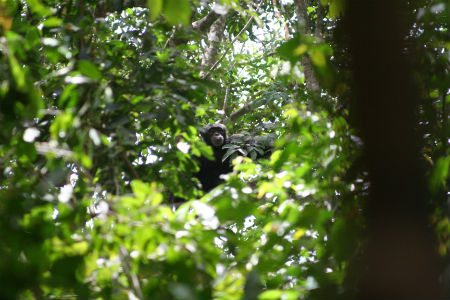
“The western chimpanzees, as well as other primate species, are all under threat in Guinea-Bissau due to uncontrolled logging and hunting.
“Over the last five years, foreign logging and mining companies have deforested large areas of original habitat within the country at an alarming rate. At the beginning of 2014, deforestation went out of control. Over 100 container trucks en-route to China and filled with illegally logged timber from endangered tropical forest species were observed on a weekly basis near the capital international port.
“Deforestation has been responsible for the extinction of some populations already and most primates groups are likely to be confined to pockets of original habitat surrounded by areas profoundly altered by human activities. At least 1,500 primate carcasses are traded every dry season at the bush-meat markets in the capital city. The pet-trade is very profitable: an infant chimpanzee can reach £28-34 where most locals live with less than £2 a day.
“One day, I received a call from a villager who claimed to have seen a large group of baboons near his village. When I arrived, he showed me a baby male baboon, not older than two years old, tied up a tree. The baby baboon was terrified and shaking. When I lip-smacked (the baboon language for hello, I am your friend), he held up his arms, asking to be held.
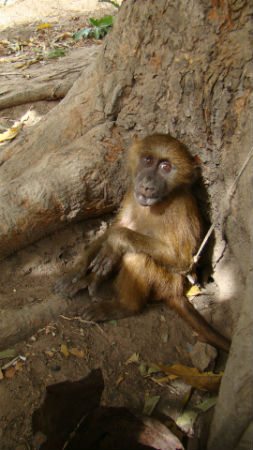
“Around me, the children of the village were shouting that they had eaten the baboon’s mother the previous night. I immediately asked for water and food and tried to explain how the baboon’s living conditions could be improved. Despite my efforts, in the end of my explanations I could not remove the baby baboon from the village and I had to leave him there.
“There are no rescue centres for captive primates in the country and national governmental organizations have no financial and logistic means to transport primates to rescue centres in neighbouring countries. Communities are not informed of how unique these primate species are worldwide, what the dangers of eating primate meat are, what the impact of their hunting practices can be and that baby primates can never be good pets.
“Despite this conservation emergency, governmental agencies and national primate conservation NGOs are incapable of implementing concerted actions at a regional-level scale. Not only baseline information on the location of the last remaining populations is missing but also the regional conservation status is out-dated for most species. To implement effective conservation measures, a scientific-based method to define and prioritize the most important areas for primate conservation is needed.
“Chester Zoo’s support was essential to effectively launch our initiative and start the first phase of the project: a survey of primate groups in southern Guinea-Bissau. With the support of Chester Zoo, we were able to attract funding from other organizations promoting primate conservation in West Africa. Together, we can assure a future for the valuable and threatened primates of Guinea-Bissau.
“Fieldwork days in Guinea-Bissau can start well and become very dramatic without warning. When I returned home after the first stage of my fieldwork, I could not stop thinking about what I could do to help primate conservation in the country.”
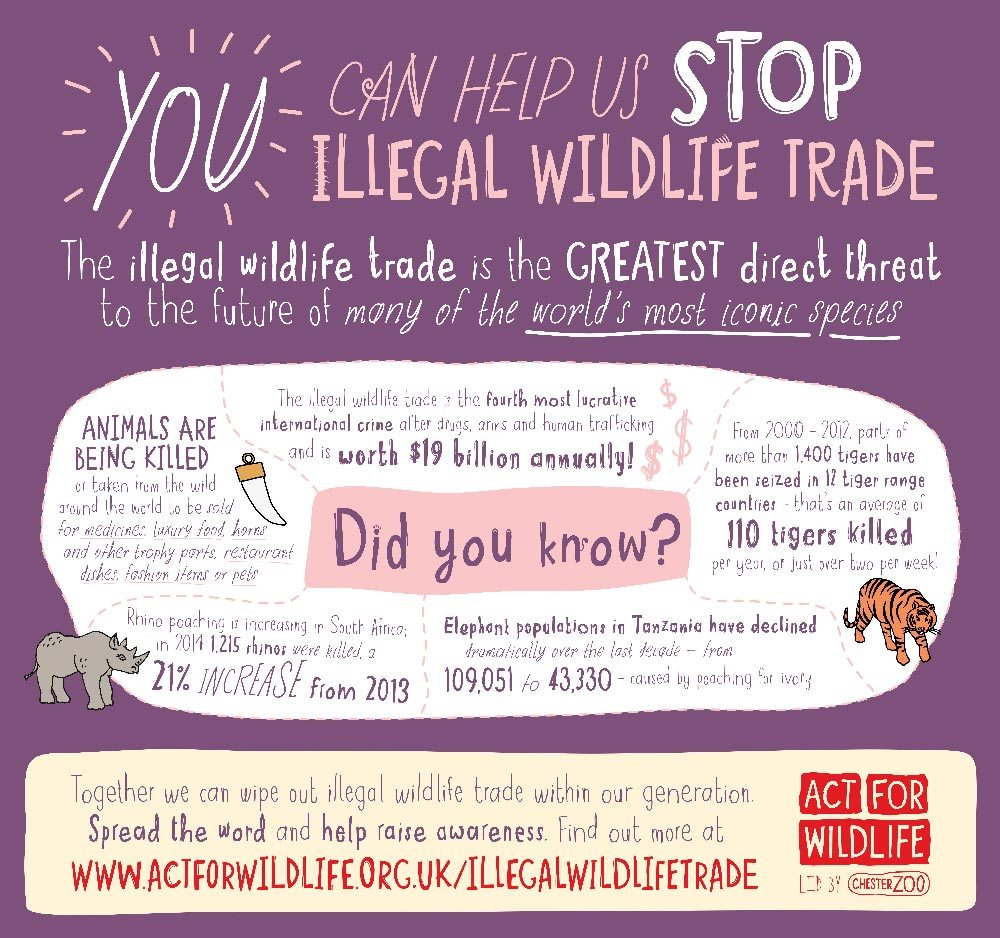
The industry is one of the greatest threats to the future of wildlife. It can include live animals and plants or a range of products sought after by humans, including animal skins, medicines, fashion items or pets.
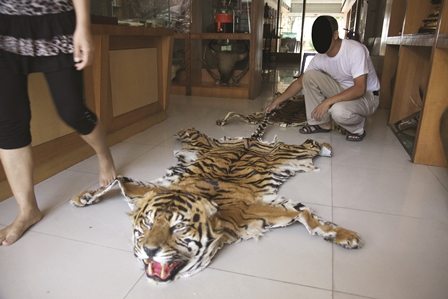
It’s a global issue which is why it’s vital to work together with other zoos and organisations around the world to help but a stop to illegal wildlife trade. We’re working in partnership with TRAFFIC, Taronga Zoo and San Diego Zoo on a worldwide campaign that aims to inspire people to report offences when they see or suspect them via the free smartphone app, Wildlife Witness.
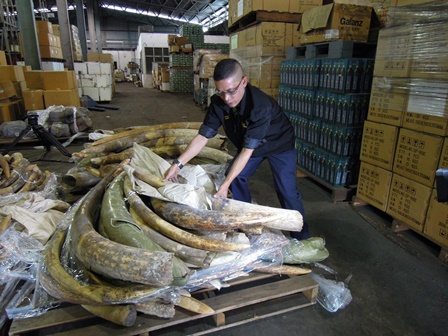
Dr Chris Shepherd, TRAFFIC’s South East Asia regional director tells us more:
“Sadly, animals are being illegally killed or taken from the wild around the world to be sold for traditional medicines, luxury food, horns and other parts, restaurant dishes, fashion items or pets. We want people to be the eyes and ears in the fight against illegal wildlife trade.
“They can report what they see through Wildlife Witness; an app that allows tourists and locals easily to report wildlife trade by taking a photo, pinning the exact location of an incident and sending these important details to TRAFFIC, the wildlife trade monitoring network.”

Data is power in the fight against the trade; analysis of reports since the app was launched have seen many incidents referred to law enforcement agencies for action. See how the data sent to TRAFFIC is used and how it can help stop illegal wildlife trade, here.
Lend your eyes and ears to the wild and become a Wildlife Witness; find out how you can help put a stop to this lucrative industry that is threatening the future of many species, large and small, here.
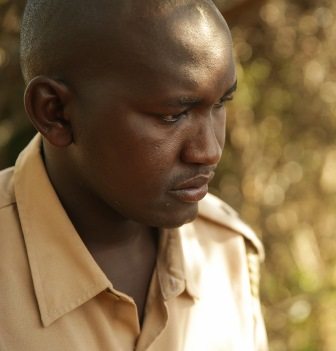
Can you please introduce yourself to me and tell me how long you have been working as a ranger for Big Life?
I am currently the head of the Big Life rhino programmes. I started working for Big Life in 2003. I started as a very, very young junior ranger, when I started with Big Life I was the youngest ranger in a team of 15. At that time, I was 17 years old.
How big is the area that you patrol?
It is over 200km square – so a pretty big area! It is very thick with a lot of forest, so it is a pretty hard area to patrol.
How long do you patrol on a daily basis?
We normally have two patrols per day. We start our normal morning patrol from 6am and the guys come back for lunch around 2pm. Then the next patrol goes out at 5pm and stays out all night. Normally, the night patrol is there to make sure that no one gets into the rhino area and lead ambushes on poacher’s hide outs. We also stay out on the hills to look around using thermal imaging.
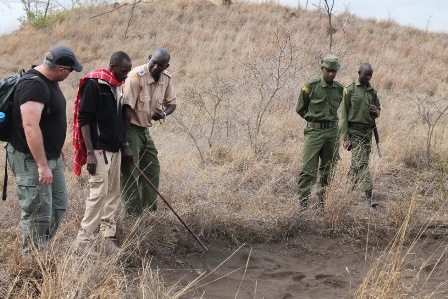
What are the daily risks that you encounter when you are doing your job?
As you know, rhinos are a critically endangered species in the wild. I have come across armed gangs two times. We have to make sure that they don’t see us before we see them. I have also been charged by a snared rhino that we were tracking down two years ago. He knocked me down but luckily I survived. I get chased by elephants every now and then but we take that as a normal daily routine, so it’s a pretty risky job that we do but we have to protect these animals. Working in the wild isn’t an easy job. I have grown up here, so it is kind of like an office job that I am doing but I love it a lot.
Can you tell me a little about some of the individual rhino that you are working to protect?
We have a big bull called Dixon, he is really really big. He is a really nice bull but he is really aggressive. Normally, black rhino are pretty aggressive. We have another called Cathy, we have named her after a lady that has been looking after us and giving us a lot of sponsorship from Save the Rhino. We also have another called Chester, of course!
Why is your job so important in helping these animals?
My job is pretty important for the whole ecosystem. If it wasn’t for us, the Big Life rangers, the Kenya Wildlife Service rangers, there would be no animals and no rhinos in Chyulu. We have so many people coming in, we have caught many of them on camera traps and they are all targeting rhinos. They bring in guns and the local people living on the other side of the hills, they sometime use poisoned arrows and put up big snares on big trees on rhino pathways. The rhino end up getting caught in these snares and end up dying. So, if it wasn’t for us, I would say that there would be no rhino left in Chyulu hills.
Do you think the poachers have become smarter and trickier to catch as technologies have developed?
You know, they haven’t really changed their ways too much; they are still using guns and putting up snares. You know, snares are a very silent and deadly way of killing rhino. Our rhino area is very very big and very thick so if a rhino is snared, it is really difficult for us to find – it is a really smart way of killing rhino. A year ago, a poacher was caught in Nairobi – he has a silencer on his weapon and he had GPS coordinates of rhino activities. So you see, they have all the equipment that we have in the field. So they are getting smarter and smarter by the day. We are trying to be always one step ahead of them but with their access to this technology, it is becoming very challenging.
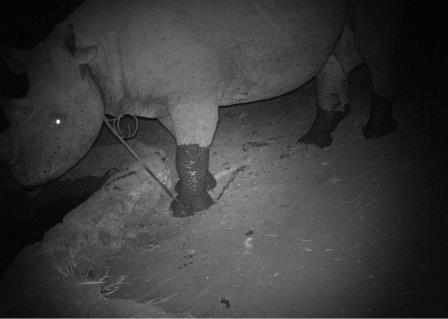
How do you think rhino poaching and international trade are linked?
For someone to get money – if a rhino is killed, they normally end up going out to Middle Eastern countries or maybe even Vietnam or China. We have been trying to investigate by catching poachers and using their cell phone contacts to find the people responsible. For example, there was one guy who we found was very aware of illegal trade and was caught by the Kenyan government with tonnes and tonnes of elephant ivory. Even a very minor guy on the ground has these contacts. So I would say that rhino poaching is mostly linked to international wildlife trade on the black market.
How are local communities helping you to protect the rhino?
I would say that 85% of successful Big Life operations come from the community. We have the community informants – someone sees an unusual person coming in, either someone who is armed or a strange looking car that doesn’t come from this area, they normally give us a call to tell us “this car with this registration number was spotted here and they did, X, Y and Z,” or “we have seen this person”. If everything goes well, we often end up capturing and arresting people based on the information from the communities. We have to give them a very good incentive and they are doing a really fantastic job. They are doing a very very important job in helping us conserve our wildlife.
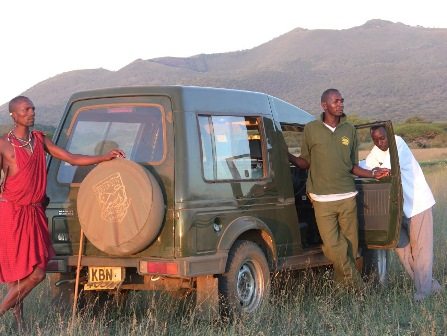
How many rangers are there working in Chyulu Hills National Park with Big Life at the moment?
In Chyulu itself, we only have 68 rangers. The rest are scattered everywhere. We have 31 different ranger outposts scattered across the whole of the Tsavo / Amboseli ecosystem in Kenya, covering a total of 1,678,000 acres, which is not a small area.
What’s the best thing about your job?
The best thing about my job…well, I grew up here, I went to school here and I am working with my community. I am conserving the wildlife that one day my kids or grand-kids might end up saying, ‘if it wasn’t for my Dad or my Grandad, we would never have seen this wildlife’. I am very much proud to be working within my community area, working with my people and to be saving something’s life.
